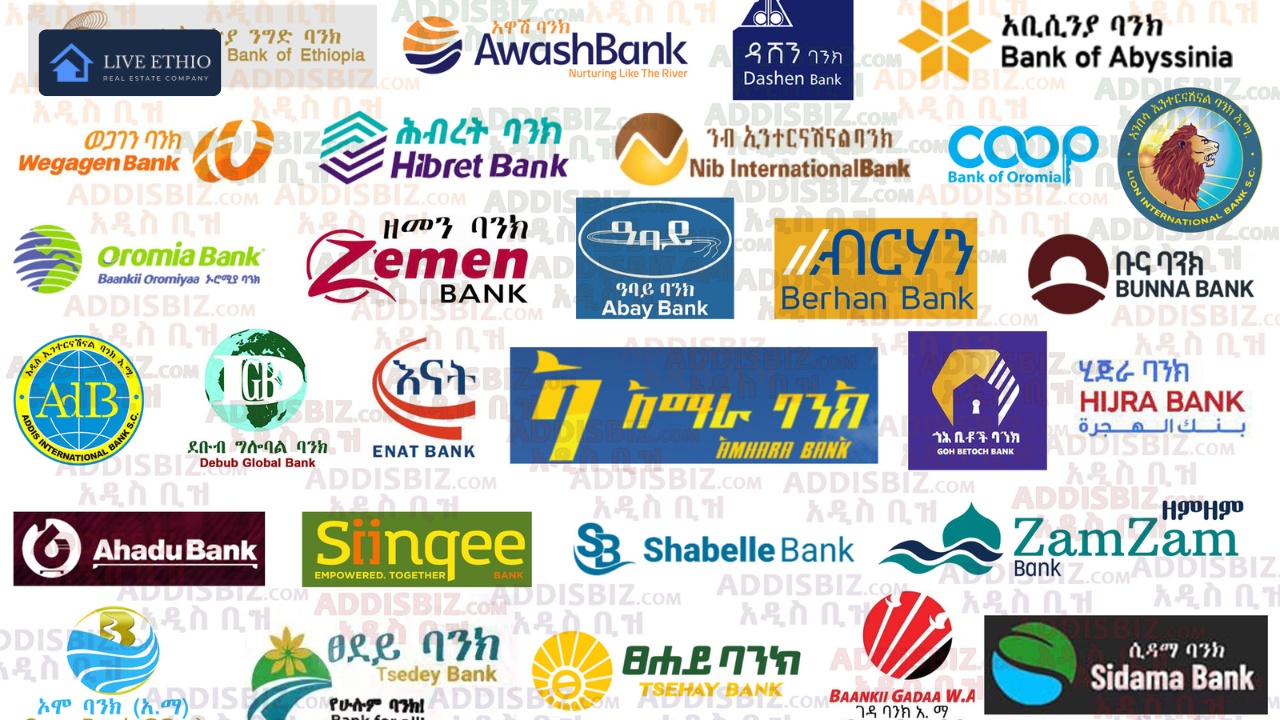Opening a bank account is an essential step for anyone living, working, or doing business in Ethiopia. Whether you’re a local resident, an expatriate, or a visitor planning a longer stay, having a bank account makes managing your finances easier and more secure. While the process may seem unfamiliar at first, understanding the requirements and steps involved will help you open an account smoothly and confidently.
In this guide, we’ll walk you through everything you need to know about opening a bank account in Ethiopia — from the documents required to the types of accounts available so you can get started without any hassle.
Types of Bank Accounts in Ethiopia
Ethiopian banks usually offer four types of accounts. Savings accounts are the most common and are designed for everyday banking with modest interest earnings. Current accounts are better suited for businesses or individuals who carry out frequent transactions. Fixed deposit accounts are for those who want to lock away their money for a set period to earn higher interest. Finally, foreign currency accounts are an option for expats and the diaspora community, allowing them to keep funds in currencies such as USD, GBP, or EUR.
Most banks also provide debit cards and some level of online or mobile banking, though the availability of digital services may vary.
Requirements for Opening a Bank Account
For Ethiopian citizens, the main requirements include a government-issued ID such as a national ID card or passport, proof of address like a utility bill or rental agreement, passport-sized photographs, and a minimum deposit depending on the bank.
Foreign nationals can also open accounts, but the requirements are slightly more detailed. You’ll need a valid passport and visa, a residence or work permit, and in some cases, a letter of introduction from your employer or sponsor. Passport-sized photos, proof of address in Ethiopia, and a minimum deposit are also part of the process. Some banks may ask for additional documents depending on your visa type and length of stay.
Step-by-Step Process to Open an Account
- Choose a Bank: Popular choices include the Commercial Bank of Ethiopia, Dashen Bank, Awash Bank, and Nib International Bank. Each offers different services such as mobile banking, debit cards, and diaspora-focused accounts.
- Visit the Branch: Most Ethiopian banks still require you to open an account in person.
- Complete the Application: Bank staff usually help with filling out the forms.
- Submit Documents: Provide all necessary IDs, proof of residence, and photos.
- Make the Initial Deposit: Deposit the minimum required to activate your account.
- Receive Your Bank Details: Once approved, you’ll get your account number and often a debit card.
Common Questions About Banking in Ethiopia
1. What are the four types of bank accounts in Ethiopia?
The main types are savings accounts, current accounts, fixed deposit accounts, and foreign currency accounts. Each serves a different purpose depending on whether you are saving, running a business, seeking higher returns, or managing money in a foreign currency.
2. Which type of bank account is the best?
The best account depends on your needs. If you’re an individual saving money for personal use, a savings account is the most practical. Businesses and those who need frequent transactions are better suited for a current account. If you want to grow your money with higher interest, a fixed deposit account is ideal. For foreigners or members of the diaspora, foreign currency accounts provide the flexibility to manage income and transfers in international currencies.
3. Can I open an online bank account in Ethiopia?
At present, most banks in Ethiopia require you to visit a branch in person to open an account. However, banks such as the Commercial Bank of Ethiopia, Awash Bank, and Dashen Bank are modernizing their systems and allow customers to start applications online or through mobile apps, with final verification done at the branch. Fully online-only account opening is not yet common.
4. How is digital banking in Ethiopia?
Digital banking is growing steadily. Banks now provide mobile apps, USSD services, and internet banking platforms for transfers, bill payments, and balance inquiries. Services such as CBE’s *889# USSD system, Awash Mobile, and Dashen’s mobile app are becoming increasingly popular. ATMs and card services are widely available, and many banks are beginning to integrate international payment systems like Visa and Mastercard.
5. What is an E-Money account in Ethiopia?
E-Money accounts are digital wallets that make it possible to store, send, and receive money without opening a traditional bank account. The most popular example is Telebirr, offered by Ethio Telecom, which has quickly become the country’s leading mobile money platform. Other options include HelloCash, used by several banks, and CBE Birr, linked to the Commercial Bank of Ethiopia. These services are especially helpful for people in rural areas or those who want quick, cashless transactions.
Why Open a Bank Account in Ethiopia?
Having a bank account in Ethiopia makes it easier and safer to manage your finances. You can securely receive salaries or business income, pay bills, and access credit or loans. For foreigners, opening an account also simplifies currency exchange and transfers, reducing the need to carry large amounts of cash.
With reliable institutions such as the Commercial Bank of Ethiopia, Dashen Bank, Awash Bank, and Nib International Bank, along with the rise of e-money platforms like Telebirr, financial management in Ethiopia is becoming more accessible and efficient than ever.
Opening a bank account is just the first step to making life in Ethiopia more convenient. If you’re also searching for a place to stay or invest, browse through our wide selection of apartments, houses, and land available today
Contact us:- +251947002233/+251974299472
